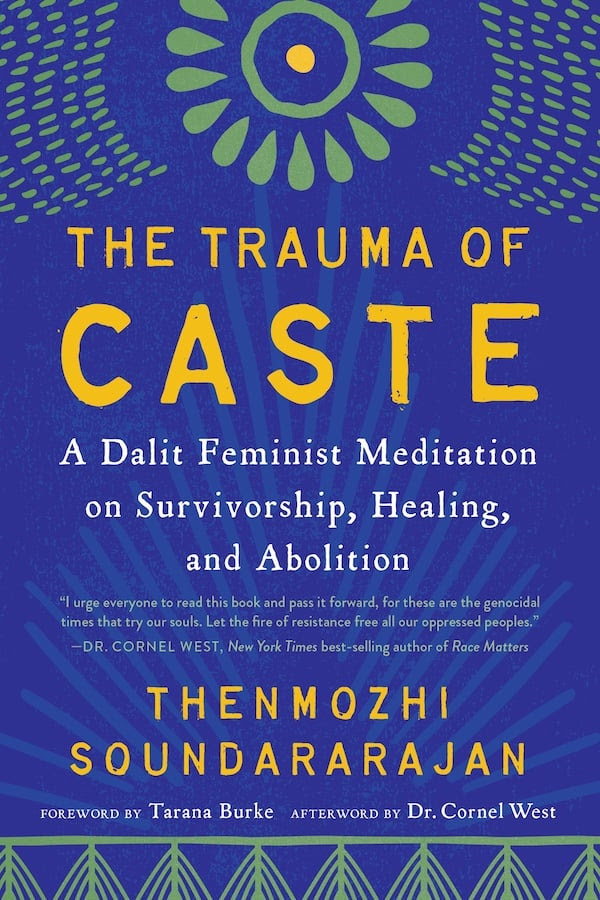
By “trouble” I mean the good kind spoken about by the late senator and organizer John Lewis when he wrote, “Our struggle is not the struggle of a day, a week, a month, or a year—it is the struggle of a lifetime. Never, ever be afraid to make some noise and get in good trouble, necessary trouble.”
We have long published books that promote healing and seek to dismantle systems that harm people. The Trauma of Caste is deeply in this lineage: written by a Dalit-American activist from a feminist and Buddhist perspective, the book is searing, immaculately researched, and ultimately infused with a message of love: that everyone—from the caste-oppressed to the caste-privileged to those who might imagine they live outside of caste—would be more free, more dignified, and more whole from the dismantling of a millennia-old system that defines an entire community as spiritually impure, less than-full human beings.
With staff united in support of publishing the book, we worked with PEN America to deepen our understanding of online abuse and what our choice points were, as an institution and as individuals, as it began to surface.
And surface it has: enmity came for Thenmozhi and the book even before it hit stores last month: threats, bullying, misogyny, and casteist and racial slurs that at times have been so dehumanizing and cruel that they deserve no repeating. These kinds of threats are not new to Thenmozhi, who has been working on this issue for decades and at times has had to travel with armed security guards. But the trolls were out in force this November, and I watched as Thenmozhi stood firm as insults and images of guns pointed in her direction flew by.
These hateful reactions are unquestionable proof that the caste system is indeed alive and well, and that Dalits still face enormous discrimination wherever they are in the world. The question remains whether one of Thenmozhi’s key tenets—that there is a beloved community available to all who refuse to abide by these injurious and rigged systems—will reach the people mistaking her as the enemy.
Regardless, Thenmozhi will not be daunted; she is, as she says, “an artifact of thousands of years of my ancestors’ love.” She is flanked on all sides by allies and supporters who see the links between caste and all of the systems that dehumanize us. As her publisher, we too will not be daunted—we are committed to co-creating our liberation, and we stand with her. If you would like to know more about caste and join the movement for caste equity, consider following Thenmozhi’s organization Equality Labs and joining their newsletter. This is the time for us to grow beloved community, resistance, and resilience.
May Thenmozhi and her book help everyone see the ways that interconnected systems of domination harm us all and be a North Star to the emergent world where we can each live in dignity. As Tarana Burke writes in her foreword to the book, embracing The Trauma of Caste is an act of “revolutionary grace, holding space for the possibilities that come after the wounds.”
—Tim McKee, publisher of North Atlantic Books
